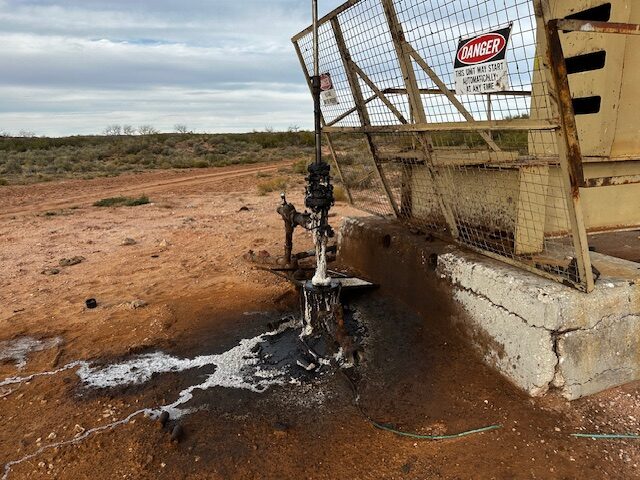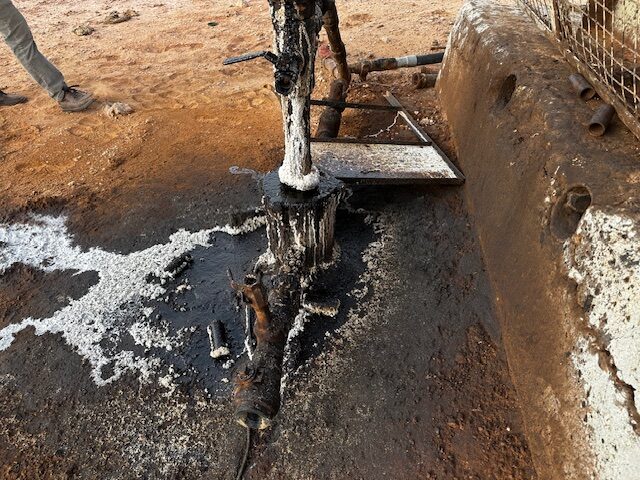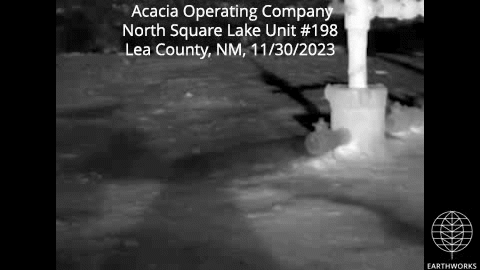

Operator self-reporting of production data is inaccurate and hinders enforcement.
The impacts of “blanket bonds” in the oil and gas industry will be an area of focus during the 2024 legislative session. A recent field investigation reveals just how urgently action on this issue is needed in New Mexico.
In November of this year, Earthworks surveyed 28 facilities in the eastern region of Loco Hills. An area east of Artesia, New Mexico, in the Permian Basin. Mostly, low-producing and abandoned oil and gas facilities reside here. However, they still pose a significant threat. The current bond amounts operators are required to pay to clean up facilities no longer in use are woefully inadequate. As a result, most well sites fall into disrepair, and cleanup costs are passed on to the citizens of New Mexico.
We observed many problems on the sites we surveyed, from leaky valves, missing equipment, oil spills, high levels of methane (ch4), and unsafe levels of sour gas (h2s). Not only will you observe high levels of pollution here, but you will also find many signs of almost non-existent accountability and enforcement.
Upon researching well production data with New Mexico’s Oil Conservation Division, some of the facilities we surveyed that were actively producing were listed as inactive. Some that were listed as active haven’t produced a single barrel of oil in years. Of the active facilities, all reported higher production levels of produced water compared to oil. Enforcement agencies haven’t inspected some in over ten years.
Other observations were also concerning. Some roads that provide access to these older low-producing well sites have either collapsed, washed out, or impassable. This poses a potential environmental emergency and an immediate threat to people and wildlife. The only way to access them at this point is by foot.

In New Mexico, operators are only required to pay $250k in blanket bonds to clean up facilities that need it. The cost to plug and clean an orphaned well ranges from $20k to $145k, according to the Department of the Interior. Considering this, most operators only have to account for cleaning up one or a few of the facilities they own.
Once a wellhead has been established, it becomes a forever problem. Thousands of idle, abandoned, and orphaned well sites still pollute. Even plugged facilities are not safe from future problems. If operators are not held responsible for the life of a well, New Mexicans will continue to pay economically and experience health consequences along with threats to our natural resources.
We need to demand that operators are accountable for the life of the well.
